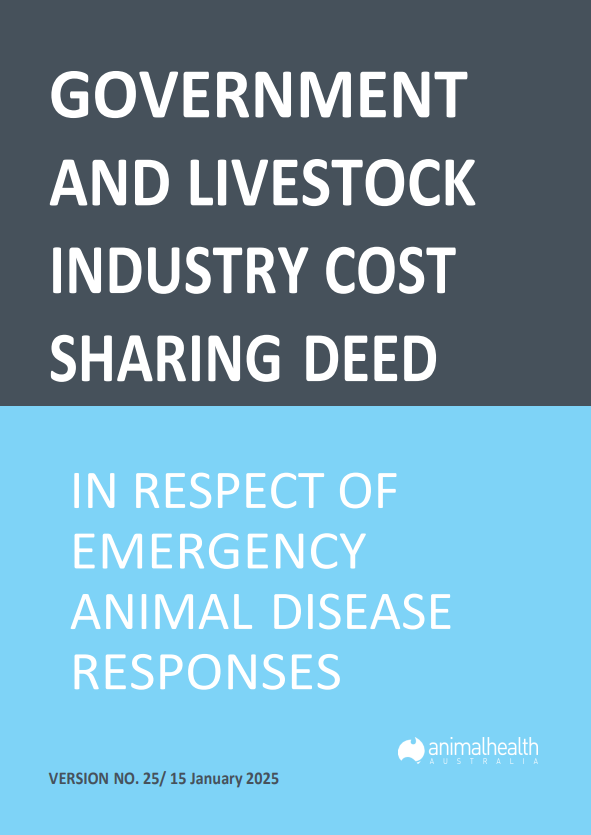The EADRA is a legally binding deed between the Australian Government, all state and territory governments, and 14 livestock industry groups, enabling a coordinated, cost-shared response to emergency animal disease (EAD) outbreaks.
Through the EADRA, all parties agree to participate in an EAD response through informed and empowered representatives who collaborate to guide the response. This ensures effective collaboration across states and territories and gives each industry a genuine voice when planning for and responding to EAD occurrences.

EADRA and schedules
Read the full terms of the agreement, including:
- cost-sharing arrangements
- roles and responsibilities
- disease categorisation
EADRA guidance
The EADRA is supported by a suite of guidance documents. They help signatories understand their obligations, manage cost-sharing arrangements, and implement consistent and effective responses to EAD outbreaks.
Why EADRA matters

Enables rapid, coordinated responses to emergency animal diseases.

Reduces uncertainty around funding and management.

Protects trade, livestock health and welfare, and public confidence.

Encourages shared responsibility and preparedness.

Ensures government and industry are part of the decision-making process.
How EADRA works
The EADRA establishes a nationally agreed-upon framework for the early detection and rapid response to over 60 categorised animal diseases. It also outlines how the costs of responding to an outbreak are shared equitably between governments and affected industries, based on the principle of beneficiary pays.
The EADRA supports effective disease management through:
Participation and cooperation
Signatories commit to active participation through empowered representatives who direct the response.
Shared decision-making
Signatories collaborate to guide outbreak responses, ensuring both government and industry have a meaningful role in shaping decisions.
Risk management
Signatories take steps to prevent disease incursions, including implementing biosecurity plans.
Detection and response
All signatories maintain capabilities for early detection and effective response.
Cost sharing
Response costs are shared equitably between affected governments and industries based on their resource base and who benefits from the response.
Training
Training is essential for an effective response. EADRA signatories all have a role in developing, delivering and participating in training.
Increasing member response capability through training
AHA strengthens member biosecurity response capability through targeted training to help them meet their EADRA responsibilities. This includes training for key roles such as Liaison – Livestock Industry (LLI), the National Management Group (NMG), and the Consultative Committee on Emergency Animal Diseases (CCEAD).